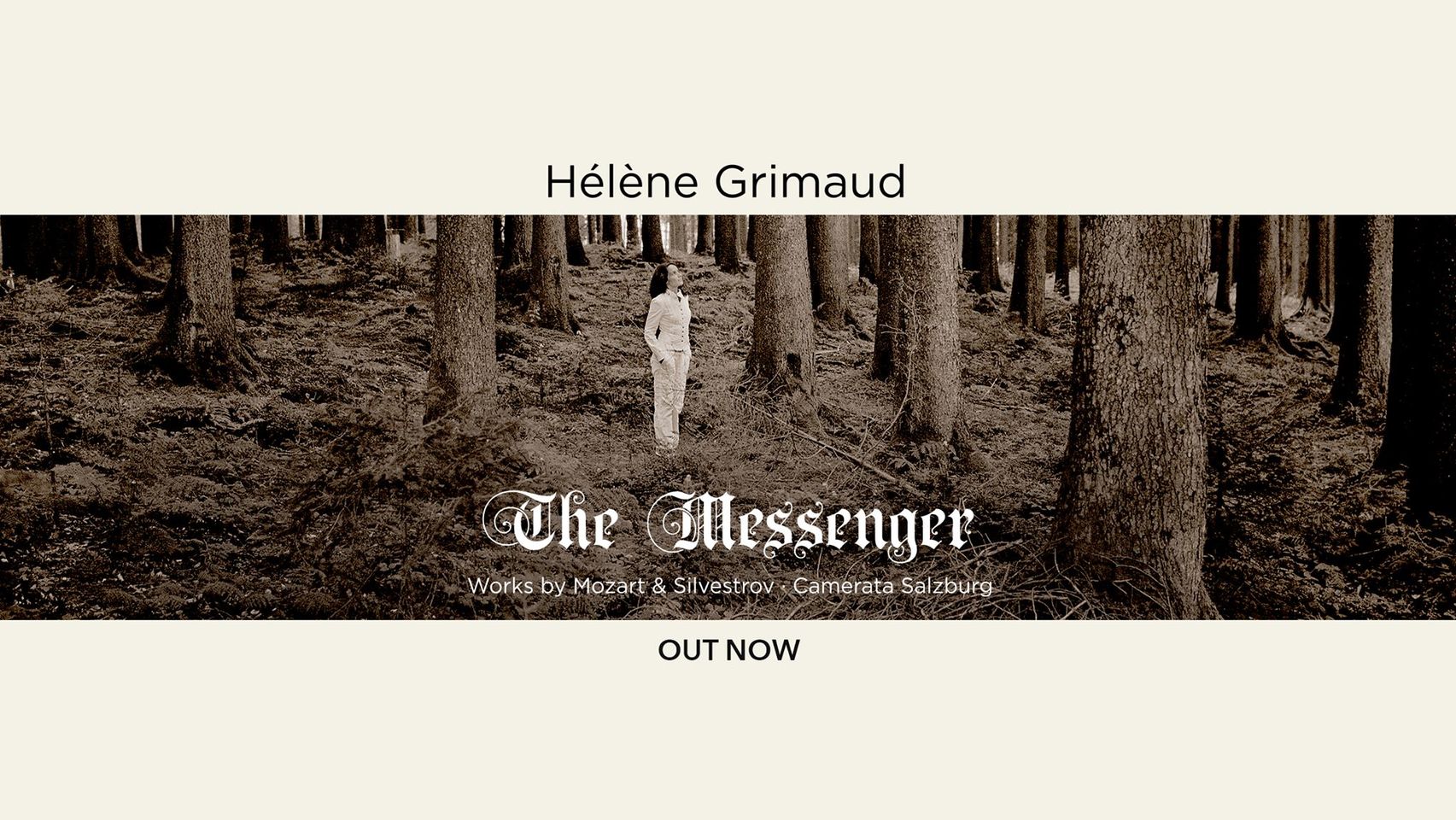
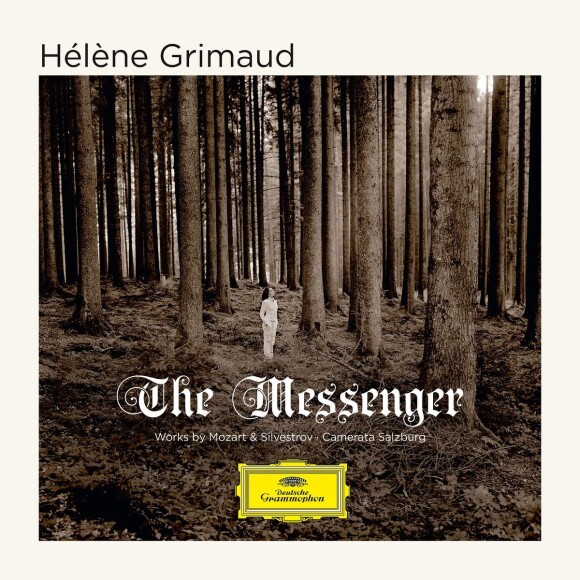
Presenting Hélène Grimaud’s brand-new album ‘The Messenger’ with unique recordings of Mozart and Silvestrov with Camerata Salzburg.
If Silvestrov is a remembrance of things past, Mozart reaches for what yet may come. This music reminds us of one of life’s great possibilities – that of change.
“I was always interested in couplings that were not predictable, in unusual combinations, because I feel as if certain pieces – even sometimes pieces by different composers – can shed a special light on to one another.” – Hélène Grimaud
The recording sessions took place at the start of this year at an historic Mozart site in Salzburg, the Great Hall of the University, where Grimaud was joined by the Camerata Salzburg. The album includes three works by Mozart: the unfinished Fantasia in D minor K 397, the famous Piano Concerto in D minor K 466 and the Fantasia in C minor K 475. Grimaud sees his use of the minor as suggestive of “confrontations with fate or destiny”. She now appreciates that there is more to his writing than Apollonian elegance and restraint, noting that it took her “many years of inner cultivation to fully recognise those burning, unpredictable currents rippling beneath the transcendental beauty”. Valentin Silvestrov’s ‘The Messenger – 1996’ offers both a response to and an echo of Mozart’s music – this idea of acknowledging and paying tribute to what has gone before is central to his art as a composer.
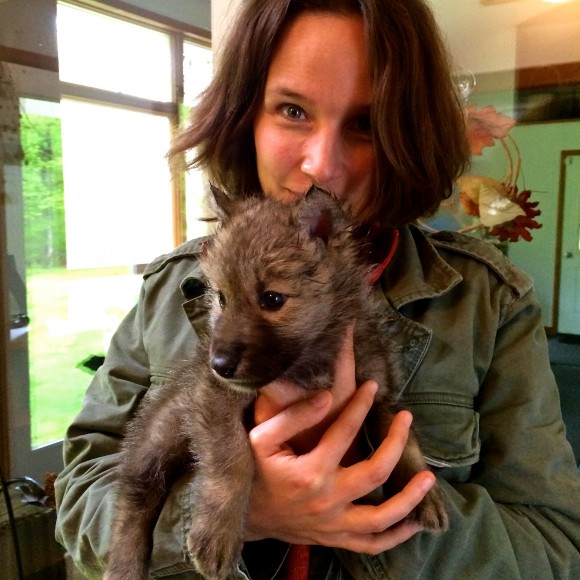
~ Hélène
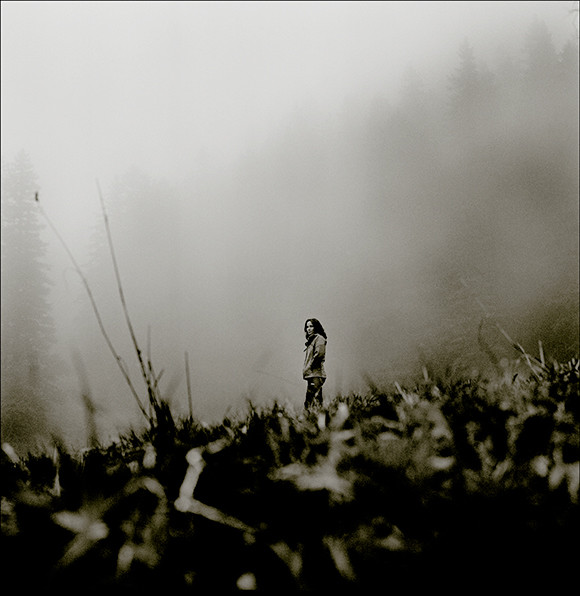
La pandémie que nous vivons est inédite; difficile d’en parler aussi brièvement que de façon juste. J’exprime mon admiration à tous ceux qui sauvent des vies, à tous ceux qui font tenir debout ce qui ne doit pas céder et ma compassion va à tous les malades, à toutes les familles endeuillées, à tous ceux qui ont à lutter contre la maladie, souvent en surcroît d’autres luttes pour vivre.
Si je pense aux compositeurs que j’interprète le plus volontiers, comment ne pas se souvenir de ce qu’ils ont eu à traverser? Bach a été contemporain des guerres de Silésie, Mozart a vécu les débuts de la Révolution française, Beethoven a fait face aux conquêtes napoléoniennes, Brahms a eu entre autres malheurs à endurer la guerre entre l’Autriche et la Prusse, Rachmaninov a pris le chemin de l’exil, Chostakovitch a exprimé ce que fut l’horreur du siège de Leningrad. Tous ces grands compositeurs n’ont pas été absents de leur temps, des temps souvent bien plus violents que le nôtre. Mais tous ont su y faire face. Avec une humanité entière. Ce que nous entendons dans leur musique est l’accord fragile entre la tragédie commune à tous les hommes et à toutes les époques et ce qui vient la sauver, ce qui offre une délivrance.
Notre temps a besoin, à nouveau, d’une “musique plus intense” (Rimbaud) qui dessine un espace où vivre en vérité, d’un temps où aimer par-delà les mille misères présentes.
A l’heure où les prédictions les plus sombres nous assaillent, dans une surenchère parfois douteuse, sachons aussi être très confiants dans les ressources de l’harmonie : elle enjambe toujours les malheurs, elle y répond à un degré supérieur. La musique est une ouverture à l’infini. Rien ne pourra faire taire ce chant à venir. Sachons avoir l’oreille ouverte à ce qui va advenir, peut-être “sur les pattes d’une colombe”.
En toute solidarité,
Hélène Grimaud
The pandemic we are experiencing is unprecedented: it is difficult to talk about it concisely or fairly. My admiration goes to those who save lives, those who hold together all that must not surrender and my compassion to all who are sick, to the families who have lost a loved one, to those who must fight the disease in addition to other struggles in order to survive.
If I think of the composers particularly dear to me, how can I not remember what they had to go through: Bach was a contemporary to the Silesian wars, Mozart lived through the beginnings of the French Revolution, Beethoven faced napoleonic conquests, Brahms had to endure the war between Austria and Prussia, Rachmaninov took the road to exile, Shostakovich expressed the horrors of the siege of Leningrad. All these great composers weren’t shielded from the struggles of their times, – times often much more violent than ours, but all faced it with fortitude and with their humanity intact. What we hear in their music is the fragile and poignant alliance between the tragedy common to all mankind and what comes to rescue and redeem it as a deliverance. Our time needs, once again, a “more intense music” (Rimbaud), to create a space to live in truth, a time to love beyond the many current miseries.
In a time where the darkest predictions assail us, sometimes in a suspect escalation, let’s remember to stay confident in the resources of harmony: to stride over all woes and to answer them on a higher level. Music is an opening onto the infinite. Nothing can silence this song to come. Let’s keep our ears open to what will come take place, perhaps as silently as “on doves’ feet”.
In solidarity,
Hélène Grimaud https://helenegrimaud.com/
Hélène Grimaud, née à Aix-en-Provence le 7 novembre 1969, est une pianiste française, également écrivain et passionnée d’éthologie.
Early life and education
Hélène Grimaud was born in Aix-en-Provence, France. She described family nationalities in a New York Times interview with John Rockwell: “My father came from a background of Sephardi Jews in Africa, and my mother’s ancestors were Jewish Berbers from Corsica.” Her father was adopted as a child by a French family and he became a university tutor teaching languages. According to Luc Antonini the name Grimaud is typical of the region of Trets in Provence. She has stated that, as a child, she was often “agitated”. She discovered the piano at seven. In 1982, she entered the Conservatoire de Paris, where she studied with Jacques Rouvier. In 1985, she won 1st Prize at the Conservatory and the Grand Prix du Disque of the Académie Charles Cros for her recording of the Rachmaninoff Piano Sonata No. 2.
She experiences synesthesia, where one physical sense adds to another, in her case seeing music as colour, which helps her with memorising music scores.
Career
In 1987, she launched her professional career with a solo recital in Paris and in 1988 she made her debut with the Orchestre de Paris under Daniel Barenboim. Grimaud made her debut with the New York Philharmonic, under Kurt Masur, in 1999, and her Carnegie Hall debut, playing the Schumann concerto, in 2002.
She performed repeatedly at the BBC Proms, including at the Last Night of the BBC Proms in London in September 2008, playing the piano part of Beethoven’s Choral Fantasia.
Critical reception
Critics have praised Grimaud’s willingness to reinterpret works and take chances, and compared her to Glenn Gould:
Grimaud doesn’t sound like most pianists: she is a rubato artist, a reinventor of phrasings, a taker of chances. “A wrong note that is played out of élan, you hear it differently than one that is played out of fear,” she says. She admires the “more extreme players . . . people who wouldn’t be afraid to play their conception to the end.” Her two overriding characteristics are independence and drive, and her performances attempt, whenever possible, to shake up conventional pianistic wisdom. Brian Levine, the executive director of the Glenn Gould Foundation, sees in Grimaud a resemblance to Gould: “She has this willingness to take a piece of music apart and free herself from the general body of practice that has grown up around it.”
Personal life
In 1991, at age 21, Grimaud moved to Tallahassee, Florida, to be near a boyfriend, Jeff Keesecker who taught bassoon at Florida State University. In 1997, she settled in Westchester County, north of New York City. After some time spent in Berlin, she resided in Weggis, near Luzern, Switzerland.
She has a passion for wolves, which she studies and raises. She now divides her time between her musical career and the Wolf Conservation Center in South Salem, New York, which she co-founded with her former companion, photographer J. Henry Fair.
Grimaud lives with her partner, the German photographer Mat Hennek in Upstate New York.
https://en.wikipedia.org/wiki/H%C3%A9l%C3%A8ne_Grimaud
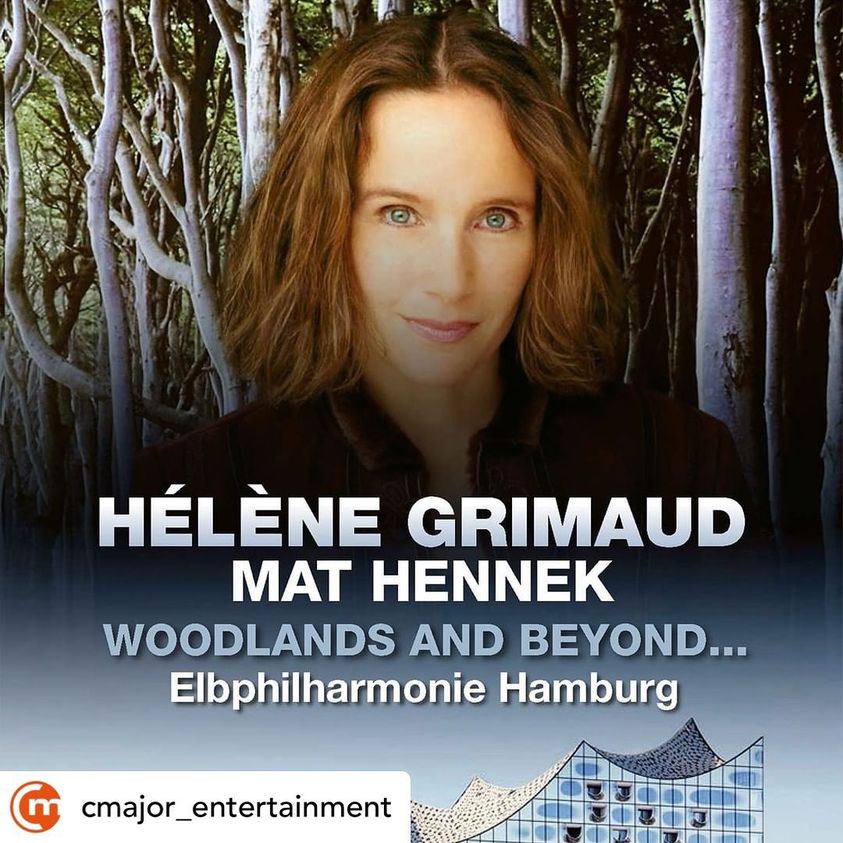
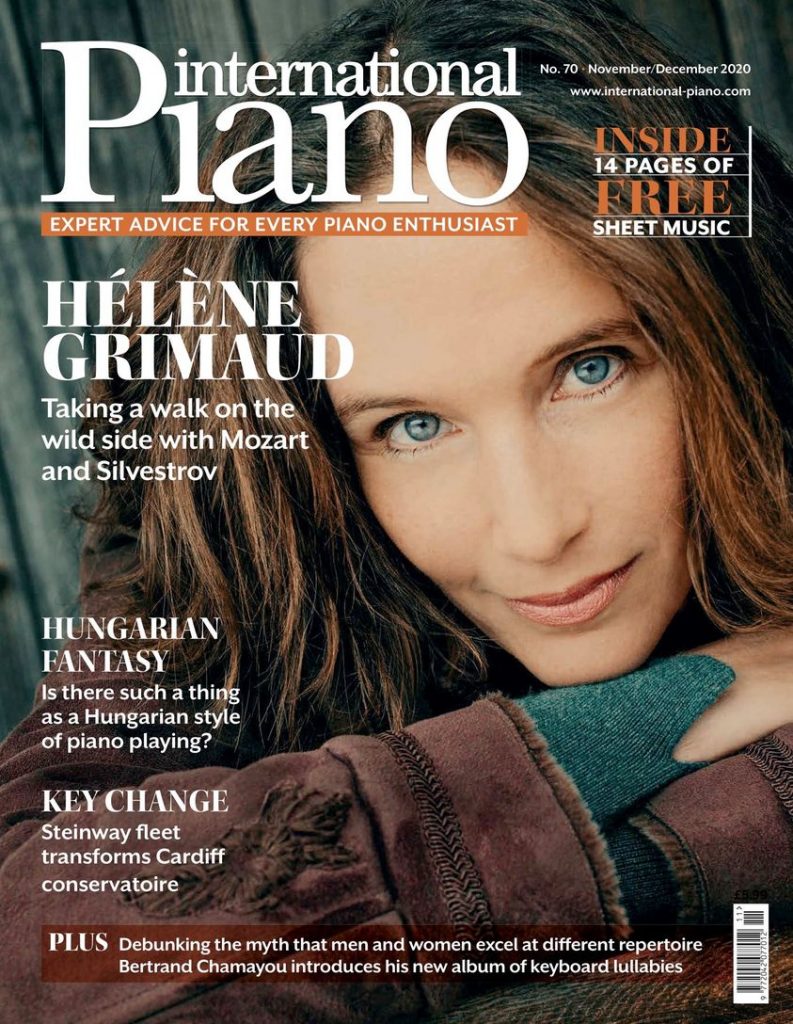
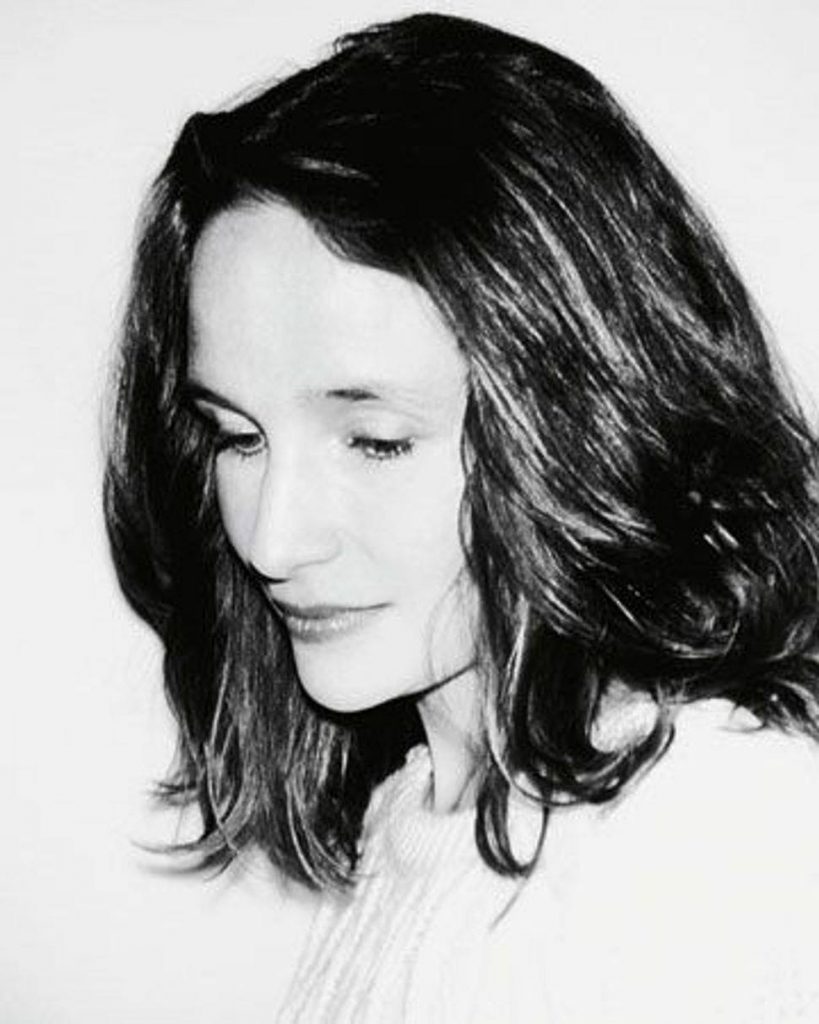
Dans son dernier album « Le messager », Hélène Grimaud instaure un dialogue fascinant entre les univers musicaux de Wolfgang Amadeus Mozart et de Valentin Silvestrov.
Hélène Grimaud : « j’ai appris à garder mon flegme à travers le contact avec les animaux »
Enregistré en ce début d’année à la grande salle de l’Université de Salzbourg, le nouvel album d’Hélène Grimaud comprend trois œuvres de Mozart : la Fantaisie inachevée en ré mineur K. 397, le célèbre Concerto pour piano et orchestre n° 20 en ré mineur K. 466 et la Fantaisie en ut mineur K 475.
The Piano Concerto in A Minor, Op. 54 was completed in the year 1845 and is the only piano concerto written by the German Romantic composer Robert Schumann. The work was premiered in Dresden on December 4, 1845. Schumann had earlier worked on several piano concerti: he began one in E-flat major in 1828, from 1829–31 he worked on one in F major, and in 1839, he wrote one movement of a concerto in D minor. None of these works were completed.
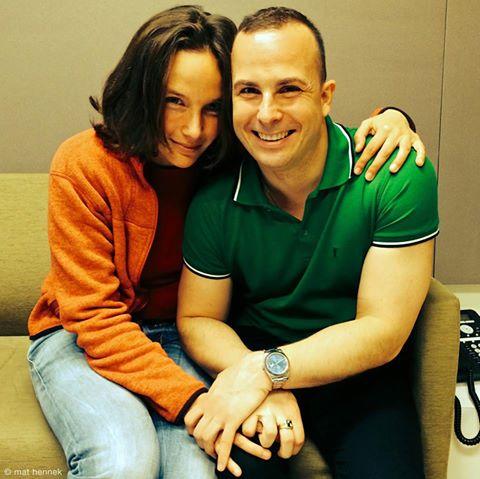
Philadelphia Orchestra in Concert re-broadcast brings us a performance from early March, which saw the return to Philadelphia of pianist Hélène Grimaud, who performs a concerto close to her heart, the Brahms Piano Concerto No. 2

The Prelude No. 1 in C Major, BWV 846, is a keyboard composition written by Johann Sebastian Bach. It is the first prelude in the first book of The Well-Tempered Clavier, a collection of two sets of preludes and fugues in all 24 major and minor keys. Both books of the Well-Tempered Clavier were widely circulated in manuscript, but printed copies were not made until 1801, by three publishers almost simultaneously in Bonn, Leipzig and Zurich. An early version of the prelude, BWV 846A, is found in the Klavierbüchlein für Wilhelm Friedemann Bach.
